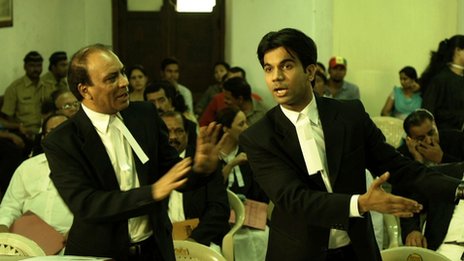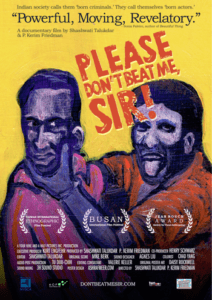
The state of human rights in India was a recurring theme throughout this year’s New York Indian Film Festival. Director Hansal Mehta won the festival’s Best Director Award for “Shahid,” a biographical film about Shahid Azmi, the activist and lawyer who was gunned down while representing one of the accused in the November 2008 Mumbai attacks.
In accepting the award, Mehta was modest, saying, “I am against awards at a festival. The fact that the film was selected is enough. I am dedicating this award to all the films that have been selected at this festival.”
Other films with strong activist themes included Devashish Makhija’s “Oonga.” The film tells the story of a young boy who runs away from home after missing a school field trip. In a journey that mirrors the story of the Ramayana, young Oonga journeys through the forest and sees the devastation caused by the mining industry in the northeastern state of Orissa. “It’s essentially a little boy’s story,” said Makhija in a red carpet interview. “A little boy who thinks that he can save his village.”
“I’ve been politically very disturbed by what is happening in India the last few years,” Makhija continued. “I’ve been traveling through the villages trying to figure out what’s been going wrong and none of this is being reported in the media. So I’ve been trying to make a film around the situation, and make it entertaining enough so people will watch it.”
 In their documentary film “Please Don’t Beat Me, Sir!” directors Shashwati Talukdar and P. Kerim Friedman highlight the Chhara of Ahmedabad, a group that was declared “criminals by birth” by the British.
In their documentary film “Please Don’t Beat Me, Sir!” directors Shashwati Talukdar and P. Kerim Friedman highlight the Chhara of Ahmedabad, a group that was declared “criminals by birth” by the British.
“It’s a film about a denotified tribal community. It’s one of the best kept secrets in India, which is just amazing because we are talking about 8 percent of the population that’s considered ‘criminal by birth,'” said Talukdar. “And it’s not the kind of thing that people hear about or talk about very often, so it’s like an eye-opener for a lot of people. And they are always very grateful. I’ve had several people come up to me and say ‘Thank you for making this film.'”
Mirra Bank’s “The Only Real Game” took home the prize for best documentary at the festival. The film follows a community of baseball players in Manipur, and buzz around the film was so great that both screenings sold out. “The feeling in the room was incredibly powerful,” said Bank. “People were tremendously moved by the film and very happy to be the first ones to see it. And I think they felt also that it is a film that will be important in doing socially good things.”
For a full list of the festival award winners click here.












